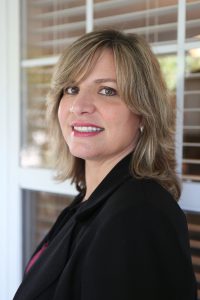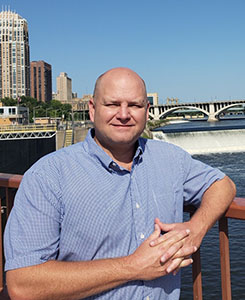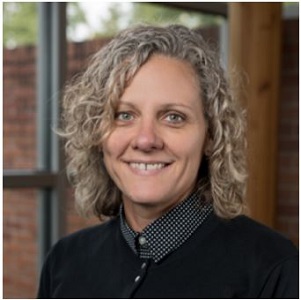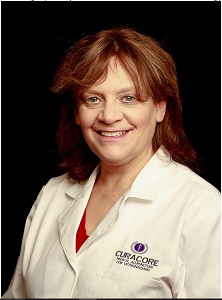Responding to the Opioid Crisis: An Educator’s View
Opioids have become a leading cause of death in many jurisdictions. The additional health impacts of the opioid crisis are widespread impacting infants to the elderly. Medical schools and medical educators are being called on to respond to this crisis. During this presentation, the impact of the crisis will be described and current educational efforts to address the ongoing crisis will be described. Integrated curricular approaches impacting the longitudinal curriculum will be described.
Using Undergraduate Medical Education to Increase the Number of Physicians Prepared to Prescribe Medication-Assisted Treatment
In this webinar, the impact and etiology of opioid use disorder nationally will be briefly discussed. The webinar will then shift to the strategy used by one medical school to integrate curriculum focused on opioid use disorder longitudinally and substantially into its curriculum will be explored. Finally, strategies for enabling curriculum to count in lieu of DATA waiver training will be discussed and how these strategies can ideally increase the number of physicians prescribing medication assisted treatment (locally and nationally).
Methods for Incorporating Opioid Education into Health Professions Curricula
This session will describe ways in which opioid abuse education has been hardwired into curricula at Lincoln Memorial University (Harrogate and Knoxville, TN) using interprofessional education as a framework through the use of technology, community involvement and interinstitutional relationships.
Informing Pain Management Curriculum: A Multidisciplinary Discussion on Alternatives to Opioids
Spinal Manipulation and Opioids: Navigating the Current Treatment Landscape
With the current opioid crisis, it is crucial to find alternative means for managing chronic pain. This session will explore the role of spinal manipulation used alone and with other types of active patient care to serve as one possible solution to the opioid dilemma.
Reduce or Eliminate the Need for Opioids by Instituting Scientific Integrative Medicine as First-line Care
In this talk, Dr. Robinson presents her 10-step program that better educates healthcare providers about ways to assess and treat pain, to practice better medicine, lessen burnout, and offer meaningful and effective integrative medical approaches based on science and evidence.
Medical Students and Substance Use: Challenges and Supports
Multiple sources have documented the level of medical student substance use, including marijuana and opioids. Challenges for medical schools in states where marijuana has been legalized will be discussed and approaches to dealing with potentially lethal medical student opioid use.
 Lisa Graves is currently the professor of Family and Community Medicine at Western Michigan University Homer Stryker M.D. School of Medicine in Kalamazoo Michigan and Associate Dean Faculty Affairs. She received her M.D. from the University of Ottawa and her residency in family medicine and enhanced skills training in maternal and child health at McGill University. She maintains an active practice including addictions with a special interest in women, substance use and pregnancy. She is the author of over 70 peer-reviewed papers including papers in the areas of substance use and medical education. Her clinical, teaching and research interests include medical education, maternal/child health and vulnerable populations.
Lisa Graves is currently the professor of Family and Community Medicine at Western Michigan University Homer Stryker M.D. School of Medicine in Kalamazoo Michigan and Associate Dean Faculty Affairs. She received her M.D. from the University of Ottawa and her residency in family medicine and enhanced skills training in maternal and child health at McGill University. She maintains an active practice including addictions with a special interest in women, substance use and pregnancy. She is the author of over 70 peer-reviewed papers including papers in the areas of substance use and medical education. Her clinical, teaching and research interests include medical education, maternal/child health and vulnerable populations. Paul George MD, MHPE is the Associate Dean for Medical Education and Associate Professor of Family Medicine and Medical Science at the Warren Alpert Medical School of Brown University (AMS). As a Brown undergraduate, he graduated magna cum laude with a degree in biology (honors), where he then continued on to graduate from the medical school. Dr. George trained in family medicine at AMS and later obtained a Master of Health Professions Education degree from the University of Illinois-Chicago. Dr. George joined the AMS faculty in 2008 and oversees the Office of Medical Education, with a specific focus on the clinical curriculum. He is also the director of the Primary Care – Population Medicine Program, a dual degree program in which students earn both a medical degree and a Master of Science in Population Medicine. Dr. George has received numerous teaching awards, including the Medical Senior Citation, awarded to a single faculty member as the highest honor a graduating class can bestow, five times. He has published over 80 papers, mostly focusing on medical education and has been the principal investigator on grants from SAMSHA, HRSA, NIH and the AMA. Dr. George has also led a local and national effort to increase curriculum in medical schools on substance use, with a particular focus on opioid use disorder, and has spoken nationally on the issue, including to Congress.
Paul George MD, MHPE is the Associate Dean for Medical Education and Associate Professor of Family Medicine and Medical Science at the Warren Alpert Medical School of Brown University (AMS). As a Brown undergraduate, he graduated magna cum laude with a degree in biology (honors), where he then continued on to graduate from the medical school. Dr. George trained in family medicine at AMS and later obtained a Master of Health Professions Education degree from the University of Illinois-Chicago. Dr. George joined the AMS faculty in 2008 and oversees the Office of Medical Education, with a specific focus on the clinical curriculum. He is also the director of the Primary Care – Population Medicine Program, a dual degree program in which students earn both a medical degree and a Master of Science in Population Medicine. Dr. George has received numerous teaching awards, including the Medical Senior Citation, awarded to a single faculty member as the highest honor a graduating class can bestow, five times. He has published over 80 papers, mostly focusing on medical education and has been the principal investigator on grants from SAMSHA, HRSA, NIH and the AMA. Dr. George has also led a local and national effort to increase curriculum in medical schools on substance use, with a particular focus on opioid use disorder, and has spoken nationally on the issue, including to Congress. Dr. Jimenez serves as the Associate Dean of Interprofessional Education and Collaborative Practice (IPECP) at Lincoln Memorial University DeBusk College of Osteopathic Medicine (DCOM) located in Harrogate and Knoxville, Tennessee. She is responsible for administrative and operational oversight for the Center for Interprofessional Education and Simulation comprised of the Center for Simulation and Training (CST) and the American Heart Association (AHA) Training Center. Together with her dynamic team, she supports clinical training and improvement activities in undergraduate, graduate, and interprofessional education including but not limited to collaboration with medical, nursing and allied health programs. Dr. Jimenez is Vice Chair of the Tennessee Interprofessional Practice and Education Consortium (TIPEC) and a fellow of the National Academy of Osteopathic Medical Educators (NAOME).
Dr. Jimenez serves as the Associate Dean of Interprofessional Education and Collaborative Practice (IPECP) at Lincoln Memorial University DeBusk College of Osteopathic Medicine (DCOM) located in Harrogate and Knoxville, Tennessee. She is responsible for administrative and operational oversight for the Center for Interprofessional Education and Simulation comprised of the Center for Simulation and Training (CST) and the American Heart Association (AHA) Training Center. Together with her dynamic team, she supports clinical training and improvement activities in undergraduate, graduate, and interprofessional education including but not limited to collaboration with medical, nursing and allied health programs. Dr. Jimenez is Vice Chair of the Tennessee Interprofessional Practice and Education Consortium (TIPEC) and a fellow of the National Academy of Osteopathic Medical Educators (NAOME). Jeremy Buchanan, BSSW is the Clinical Exam Center (CEC) and IPE Manager at Lincoln Memorial
Jeremy Buchanan, BSSW is the Clinical Exam Center (CEC) and IPE Manager at Lincoln Memorial Dr. Suzanne D. Lady is an associate professor and former chair of the Department of Clinical Education at the University of Western States. She is the current chair of the Doctor of Chiropractic Learning Assessment Committee. Dr. Lady is the lead instructor for several clinical skills courses, manages the Clinical Skills Enhancement Center (CSEC) remediation program in the Doctor of Chiropractic program and is a co-facilitator for the Mind-Body Medicine elective modeled after the Georgetown School of Medicine program.
Dr. Suzanne D. Lady is an associate professor and former chair of the Department of Clinical Education at the University of Western States. She is the current chair of the Doctor of Chiropractic Learning Assessment Committee. Dr. Lady is the lead instructor for several clinical skills courses, manages the Clinical Skills Enhancement Center (CSEC) remediation program in the Doctor of Chiropractic program and is a co-facilitator for the Mind-Body Medicine elective modeled after the Georgetown School of Medicine program. Narda G. Robinson, DO, DVM, MS, FAAMA, is a leading authority on scientific integrative medicine from a One Health perspective. She served as faculty at the Colorado State University College of Veterinary Medicine and Biomedical Sciences (1997-2016) and currently leads CURACORE VET and CURACORE MED as founder and CEO. These entities educate veterinary and human healthcare providers, respectively, on the principles and practice of pain medicine, rehabilitation, and integrative medicine as first-line care.
Narda G. Robinson, DO, DVM, MS, FAAMA, is a leading authority on scientific integrative medicine from a One Health perspective. She served as faculty at the Colorado State University College of Veterinary Medicine and Biomedical Sciences (1997-2016) and currently leads CURACORE VET and CURACORE MED as founder and CEO. These entities educate veterinary and human healthcare providers, respectively, on the principles and practice of pain medicine, rehabilitation, and integrative medicine as first-line care. Dr. Lee Jones received his B.A. from Dartmouth College and M.D. from Columbia University College of Physicians and Surgeons. After completing a psychiatry residency and chief residency at University of California at Los Angeles (UCLA) Neuropsychiatric Institute, he entered a consultation – liaison fellowship at Cornell Memorial Sloan-Kettering Cancer Center followed by a research fellowship at the University of California at San Diego (UCSD). Dr. Jones has worked in medical school curricular affairs, graduate medical education, admissions, and student affairs at Tulane, University of California at Los Angeles (UCLA), University of California at San Francisco (UCSF), University of Texas at San Antonio, the University of Arizona at Tucson, and University of California at Davis (UCD) prior to returning to UCSF as the Associate Dean for Students. Dr. Jones has been a Liaison Committee for on Medical Education (LCME) Site Team member and Association of American Medical Colleges (AAMC) Holistic Review Site Team member. He serves on the Board of Directors at AAMC and the Chair of the Medical Student Performance Evaluation (MSPE) Task Force. His clinical work is in Emergency Department Psychiatry and Medical- Surgical Consultation Psychiatry.
Dr. Lee Jones received his B.A. from Dartmouth College and M.D. from Columbia University College of Physicians and Surgeons. After completing a psychiatry residency and chief residency at University of California at Los Angeles (UCLA) Neuropsychiatric Institute, he entered a consultation – liaison fellowship at Cornell Memorial Sloan-Kettering Cancer Center followed by a research fellowship at the University of California at San Diego (UCSD). Dr. Jones has worked in medical school curricular affairs, graduate medical education, admissions, and student affairs at Tulane, University of California at Los Angeles (UCLA), University of California at San Francisco (UCSF), University of Texas at San Antonio, the University of Arizona at Tucson, and University of California at Davis (UCD) prior to returning to UCSF as the Associate Dean for Students. Dr. Jones has been a Liaison Committee for on Medical Education (LCME) Site Team member and Association of American Medical Colleges (AAMC) Holistic Review Site Team member. He serves on the Board of Directors at AAMC and the Chair of the Medical Student Performance Evaluation (MSPE) Task Force. His clinical work is in Emergency Department Psychiatry and Medical- Surgical Consultation Psychiatry.